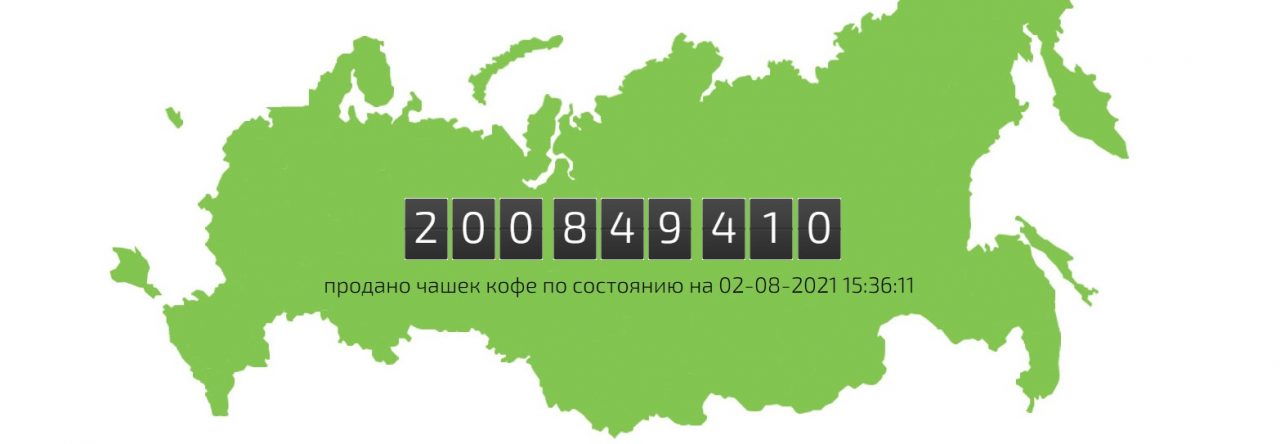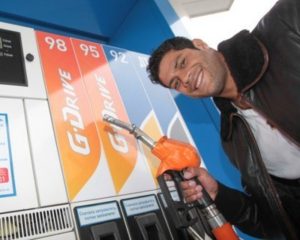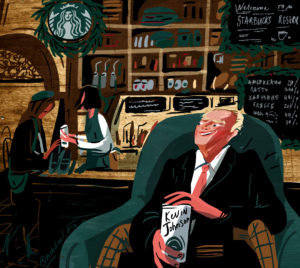Savvy marketing does not always help, but it certainly never hurts. The universal rule that brings to life an infinite number of brands, promotion campaigns and rebrandings of virtually anything around us. It works in the fuel segment, too – the most striking example of it is the G-Drive: a brand under which merged a premium fuel for cars and an energy drink. Any fan of “Zenith”, as well as any active Internet user was faced with a G-Drive advertising campaign: the famous Hulk during training sessions performs exorbitant power tricks – tears the ball apart, or does the same to the net, then makes his colleagues looks like extras in game situations.
Category: RusHOLTS
«Life After Oil» is one of the most quoted events held during the St. Petersburg International Economic Forum. “For our country the oil is everything, it is 25% of GDP. So to imagine the structure of our economy without the oil which has not only a direct impact, but also an indirect contribution to GDP by attracting investment through consumption, is probably impossible”,- quote from a speech by Herman Gref.
Accepting this new reality is difficult not only to Russia. In Canada they also believe that country’s status as an energy superpower is under threat because of the more rapid speed of decline of the era of fossil fuels on the market than it was thought previously.
We’ve told you already about the history of the financial relationship of David Rockefeller and company Exxon Mobile.
David Rockefeller-Sr., the grandson of the founder of the dynasty, said he had lost faith in Exxon Mobil and donated its shares, which he’d got directly from his great-grandfather, to a non-profit Rockefeller Family Fund, which deals with environmental issues.
For non-fuel gas station businesses this trend has some good news in it. The modern driver’s need for a cup of coffee and some rest occurs more frequently than his car runs out of gasoline. This can easily be confirmed by the figures. Shell in 2015 had an operating loss from the core operations in the tune of $5.7 billion, but profits from “auxiliary” businesses, including retail, have grown over the past year three-fold to some $10.2 billion. Source >>
Therefore i consider an interview of Istvan Kapitani, executive vice president and Head of Retail businesses in Royal Dutch Shell, to be an essential one.
Istvan Kapitani joined the company in 1987 as a manager of filling station in Hungary, namely at his homeland. Today he leads the direction, which includes more sales outlets than Starbucks or McDonald’s. 43 000 gas stations, 500 000 employees and 25 million customers in 70 countries every day.
The future of fuel retail
Many of the current problems of fuel retailers today can be reduced to one thorny challenge – how exactly gas stations should be transformed in the light of the needs of the world with constantly falling oil prices, growing environmental requirements and the upcoming emergence of unmanned vehicles.
RBC TV tried to find out whose coffee business is better – McCafe’s & Starbucks’? Classic children’s question: “Who is stronger, an elephant or a whale?” And a boring grown-up answer: “Two subjects must be compared on common parameters”. It is strange that none of those present in the studio have not identified these “common parameters”, having lost sight of that in the competition between the two world HoReCa market leaders we observe frontal confrontation between players using virtually the same automated technology of coffee preparation and not the difference in the “approach to the consumer”.
You get nowhere without IT. Information technologies are so closely intertwined with all the business processes of transportation and logistics companies, that even coffee machines monitoring is implemented as an remote solution. Here’s an interview with CEO of RusHOLTS Alexander Kuzmin for the magazine “Technologies and means of communication”, # 1, 2016.
– What the trends in the field of IT and telecommunications are priority for your organization?
– Logistics companies of 4PL level are engaged in supply chain management, they become part of the business processes of partners with whom they work. We organize the supply chain of gas station chains in all aspects that relate to the non-fuel business. Simply put, we supply all the necessary from the goods for sale, supplies, furniture, coffee machines to IT-solutions that automate processes of gas station’s daily operations. Gas stations chains as a retail object have a lot of features. Each store by itself is small, but the scale of the chain may be hundreds or even thousands of stations. The total number of chain’s cafe and store items is about 3000 SKU (items’ ID), the station may make an order starting from 500 rubles worth. And everybody can imagine Russian distances very well. The organization and supply chain management in these conditions are a heavy task requiring a lot of masterhood which is impossible without IT.
How we started to work with the products under the brand name of our private label, how we were developing this direction and what conclusions we’ve drawn. >>
This material includes, perhaps, a one fifth part of the story, so the full version is available to read in the blog.
We’re thanking the magazine “Trick of the trade”, which gave the opportunity to speak out on the important subject for us. Because the private label goods for hypermarkets and private label goods at the gas stations require a different technology to be applied, pursue different goals and objectives, have different pricing and so on and so forth. We’ve said it and we will repeat it for 100-500 times. Those who have already realized this, please, do not be offended.
In terms of shopping malls business, RusHOLTS is now among the five largest suppliers of automotive products for the relevant departments of the federal hypermarket chains. We started off developing our business in the 90s by supplying chemicals and auto cosmetics. In the Russian market we were the official representatives of world’s two huge brands – Holts and Redex. At that time in our country there was no hypermarket chains and gas stations chains have only been planned to start manage its shops on a unified and centralized basis. Then there was 1998 defaulted payments crisis.
The people stopped buying expensive imported car cosmetics, but no one refused from the use of the cars and their quantity only grew. Then we decided to create our own full-scale range of chemicals and auto cosmetics from fluids and fuel additives to polishes and air fresheners. So that niche of autochemistry saw import substitution by Russian-made goods as early as in 1998. Many well-known brands in this direction became the history since that time. Products created by us were unified under the umbrella brand EXPERT.
This conversation has been translated in English with some abridgements. Full version >>
Line personnel from procurement departments is recommended to refrain from reading.
Alexander Kuzmin is an expert with over 20 years in non-fuel business of gas stations and the implementation of projects of its reorganization. With this huge experience, Alexander is ready to offer the plan for the changes to the chain of stations of the federal scale in just 30 minutes.
His partner in this conversation is the head of federal chain which is bringing together more than one thousand stations located over the entire territory of the Russian Federation. In our dialogue, he will be called the Leader.
Leader: Alexander, you promised to tell me about the most important changes that I need to carry out so that customers perceive our stations on a par with the best European chains. And you promised to do so in just 30 minutes.
Alexander Kuzmin: Before you begin the conversation i would like to clarify what are the specific goals you want to achieve?
Leader: For over the last five years there has been a significant strengthening of the position of vertically integrated oil companies, whose major shareholders are various state-controlled structures. In the eyes of the vast majority of Russian citizens oil companies and their corresponding chains of gas stations are clearly perceived as being a part of the “state”. All attemps to prove them otherwise had the opposite effect.
Alexander Kuzmin: In simple terms, Russian drivers should take your gas station as being the same as “cool” foreign ones. Is that so?
Pain-in-the-assLESS or “Three in a boat: men, poverty and dogs”*
«I have known a Russian learn Chinese within six months. English! they learn it while you are talking to them. The children play at chess and study the violin for their own amusement.
The world will be glad of Russia when she has put her house in order»
Jerome K. Jerome
The soviet film “Three Men in a Boat” perfectly captures the spirit of Jerome’s novel, although there’s a little that’s been left from the original masterpiece. The road sets a special mood and genre of ironic travel writing is very close to my working mood. The irony is the best way to survive the road adventures both for a traveling person and for the host country. There’s no such thing as perfect road, car, gas station, caf? in this world. Instead there are cozy and clean, minimalistic and heaped up, making part of a chain or solitary places. You want to go at one gas station, the other one you want to pass.
“When we got to Datchet we took out the hamper, the two bags, and the rugs and coats, and such like things, and started off to look for diggings. We passed a very pretty little hotel, with clematis and creeper over the porch; but there was no honeysuckle about it, and, for some reason or other, I had got my mind fixed on honeysuckle, and I said: “Oh, don’t let’s go in there! Let’s go on a bit further, and see if there isn’t one with honeysuckle over it”.
History repeats itself several times, and the characters of Jerome were nearly left on the street without an overnight stay. Do you think that drivers choose gas station somehow differently? I can talk about the “rational” choice of the people for hours.
Contemporaries did not accept Jerome’s prose as the “real literature”, and yet hundred years later readers are still smiling over the adventures of his characters: they have the charm of spontaneity. It would seem that the Russian people should feel closer to “Journey from St. Petersburg to Moscow.” By the way, I can describe the exact location, range and volume of fuel sales, call the management and staff by their names, remember caf?’s menu in almost all of gas stations located alongside the road which once was traveled by Mr. Radishchev. What Thames and adventure of the George, Jim and Harris trio mean to me? But it seems that the irony is closer to my heart and soul than social satire. I smile once again, re-reading the description of the process of packing the road basket, comparing it to the formation of commodity matrix of a store in gas station and “heroes” of economic reports are no longer extras in a sad play staged day after day, not understanding the overall meaning or their own role.
The way to a man’s customer’s heart is through his stomach. The girls also love a cup tasty coffee, and the long journey makes everybody equal. The role of the caf? at gas station is to provide a tasty meal!
Gas is the same and let’s say it is equally good or even great everywhere, but we brew some gourmet coffee and will treat our customer with tasty buns, and now he’s here to stay with us. Real life experts are rubbing their hands as if they were saying “Wait ‘till we’ll tell you”. And indeed they do tell a never-ending story about customer service.
Recently I have found on the Internet one such story.
It happens that two experts are looking at the same situation from different angles. It does not change the components of the situation – poor customer service is still being that way. But an expert on corporate culture sees a way out in the education of adults, which is a hard task. From where I stand it seems to be as one more validation of propriety of non-fuel business automated straight-line organization. I swear, half of the dialogue between the well-known business coach Konstantin Kharsky and an unknown employee of the gas station would not have happened even if only the business process was organized properly.
This is an audio recording of this story. >>
I do not know the cost of a liter of gasoline
Drivers often choose the gas station not because of the cost of a liter of gasoline – over the last few years the prices in most gas chains have been almost identical. Chains are competing via related services.
If the driver can fill a full tank or refuel it at 1000 rubles – this is a good and profitable customer. This man before this whole story had no particular preference, but chose this particular chain as it guaranteed the quality of fuel and related services. Pretty ordinary course of conduct of our time.
Рart 1. The secret of success are not the coffee beans, but the type of coffee machines and proper setting
Much has been written about the gas stations – it is a unique segment of the market, interest in which won’t disappear as long as there is a need to fill cars with the fuel. According to the standard classification businesses of any gas stations network are divided into two main categories – fuel (fuel) and non-fuel (nonfuel) ones.
“Cafe at the gas station” not only creates the “atmosphere” of the gas station, but also has a huge business potential that has yet to open on the Russian market. Indicative is the experience in Europe, where sales of non-fuel products account for about 60% of the overall gas stations’ profits. The Russian players have this figure in the range between 5 to 20%. There is some work to be done.
Interestingly enough, gas station is the only place where the business linked with the global product №1 (oil and oil-based products) is closely related to the business linked with global product №2 – coffee. So it is not surprising that these two businesses, each in their category are the main sources of profits for gas stations. Without going into the intricacies of stock prices and the prices of green coffee beans, we decided to discuss the development of this category in the domestic market and to answer the question of how the modern Russian gas station managers might enhance the effectiveness of coffee-related businesses of their chains.
This round table was attended by:
Alexander Kuzmin – an expert who has spent more than 20 years in non-fuel businesses in Russian and foreign gas station networks;
Ksenia Van de Kamp – managing partner of BMS (USA);
Artem Astafurov – Managing Partner, Senior Vice president of DataArt (USA);
Moderator – Dmitry Petrov;
Dmitry Petrov: Today we have a rather unusual audience to talk about coffee – there are no famous barista or traditional suppliers of coffee grounds for HoReCa market among us. Instead we have an expert on non-fuel businesses for gas stations, innovative marketing specialist and IT-manager of a global level company, a rather peculiar team of participants to discuss a business, traditionally surrounded by an aura of mystery and magic of coffee aroma. Don’t you think?


